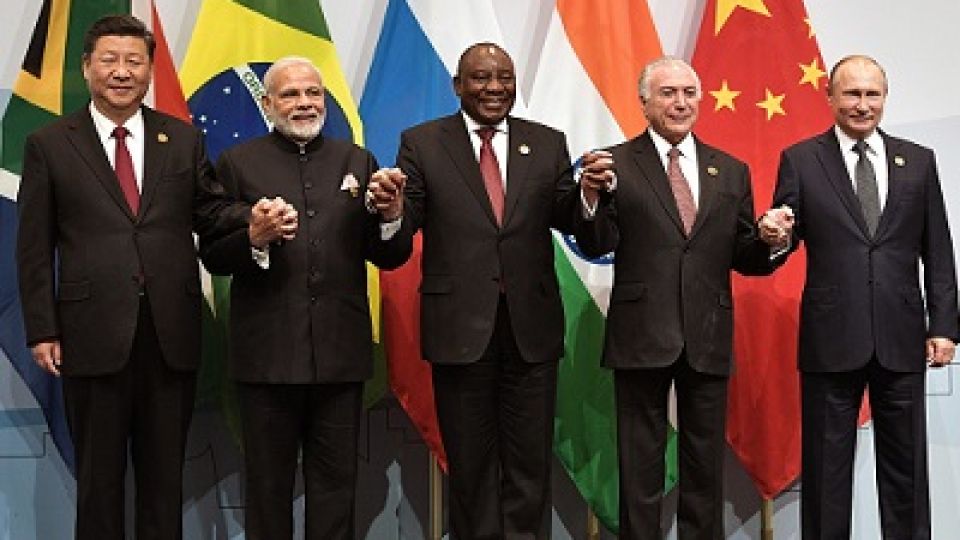by SAVIOUS KWINKKA
JOHANNESBURG, (CAJ News) – THANKS to technology, the absence of Russian president, Vladimir Putin, from the Brazil, Russia, India, China and South Africa (BRICS) Summit will not be felt.
The Kremlin leader will address virtually the summit ongoing in South Africa until Thursday.
Putin’s absence is because of pressure on South Africa to arrest him if he attended the summit, which comes months after the International Criminal Court (ICC) controversially slapped a warrant of arrest on him following the outbreak of conflict with Ukraine in 2022.
BRICS leaders expected to speak include Brazilian President Lula da Silva, Indian Prime Minister Narendra Modi, Chinese President Xi Jinping and host president, Cyril Ramaphosa.
These leaders from the world’s three largest continents, Africa, Asia and Latin America are gathering to seek solutions to economic, political and social development issues.
Plans to introduce BRICS currency are likely to see many African, Asian / Middle East and Latin America governments reduce reliance on or abandon the International Monetary Fund (IMF) and the World Bank, whose interest rates are said to be higher when dealing with non-Western nations.
As a result, many countries from the global south felt being denied or blocked from growing their economies by the “global systematic hegemony” aimed at suppressing any growing economies.
The global south has over the years been subjected to economic sanctions by the West and unfairly treated in the polarised geopolitical world.
The United States and Europe are seen taking advantage of the US dollar’s dominance.
Following the war outbreak in Ukraine, the US and its Western allies were quick to impose economic sanctions on Moscow, removing Russian banks from the Swift, with several unfair economic embargoes imposed without even settling for peaceful resolution.
The global south also queried the US and ICC’s double standards in the application of law as, for example, Israel illegally occupied and butchered thousands of Palestinians since 1967.
The North Atlantic Treaty Alliance (NATO) also bombed Libya and aligned militants killing Libyan leader Muammar Gaddafi.
In 1991 and later 2003, the US, and NATO illegally invaded Iraq, where more than one million people, mainly children and women, were killed on flimsy allegations Baghdad had developed weapons of mass destruction, something that was proved to be untrue.
ICC did not issue any warrant of arrest to both the then US president George Bush and his British counterpart, Tony Blair.
BRICS AIMS AND OBJECTIVES
The BRICS nations seek to achieve the following:
– Cooperation, development, and influence in world affairs are at the heart of the BRICS goals. The following are a few of the main BRICS goals:
– Economic cooperation: encouraging trade, cooperation and growth among members, as well as improving BRICS economies’ access to markets.
– Development financing: Creating institutions such as the CRA and the NDB to finance infrastructure and development projects in member nations.
– Political coordination: Strengthening political discourse and coordination on international issues, such as modifying institutions of global governance to take into account the shifting global economic landscape and to provide rising economies with a stronger voice and representation.
– Social and cultural exchanges: Promoting interpersonal relationships and mutual respect for one another’s cultures while also boosting social and cultural exchanges between member nations.
– Technology and innovation: Strengthening international collaboration in the fields of science, technology and innovation to promote knowledge exchange, capacity building and technological advancements among member nations.
– Sustainable development: Promoting environmentally friendly and sustainable development methods while working together to achieve sustainable development goals.
– Peace and security: Promoting peace, stability and security locally and internationally while addressing shared security issues and risks, such as terrorism.
South–South cooperation: Strengthening cooperation and collaboration among developing countries, sharing best practices, and supporting initiatives that contribute to the overall development of the Global South.
– CAJ News

